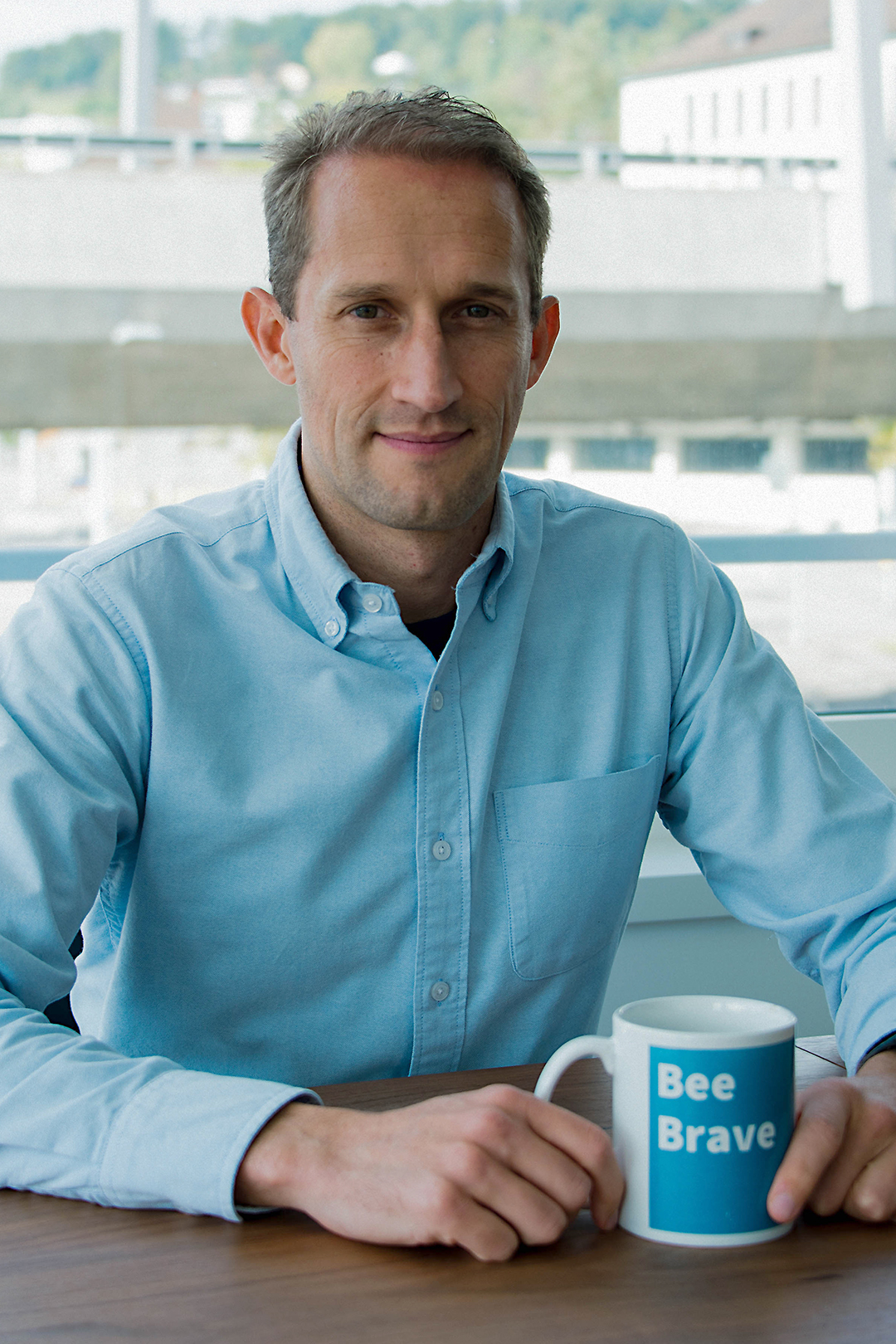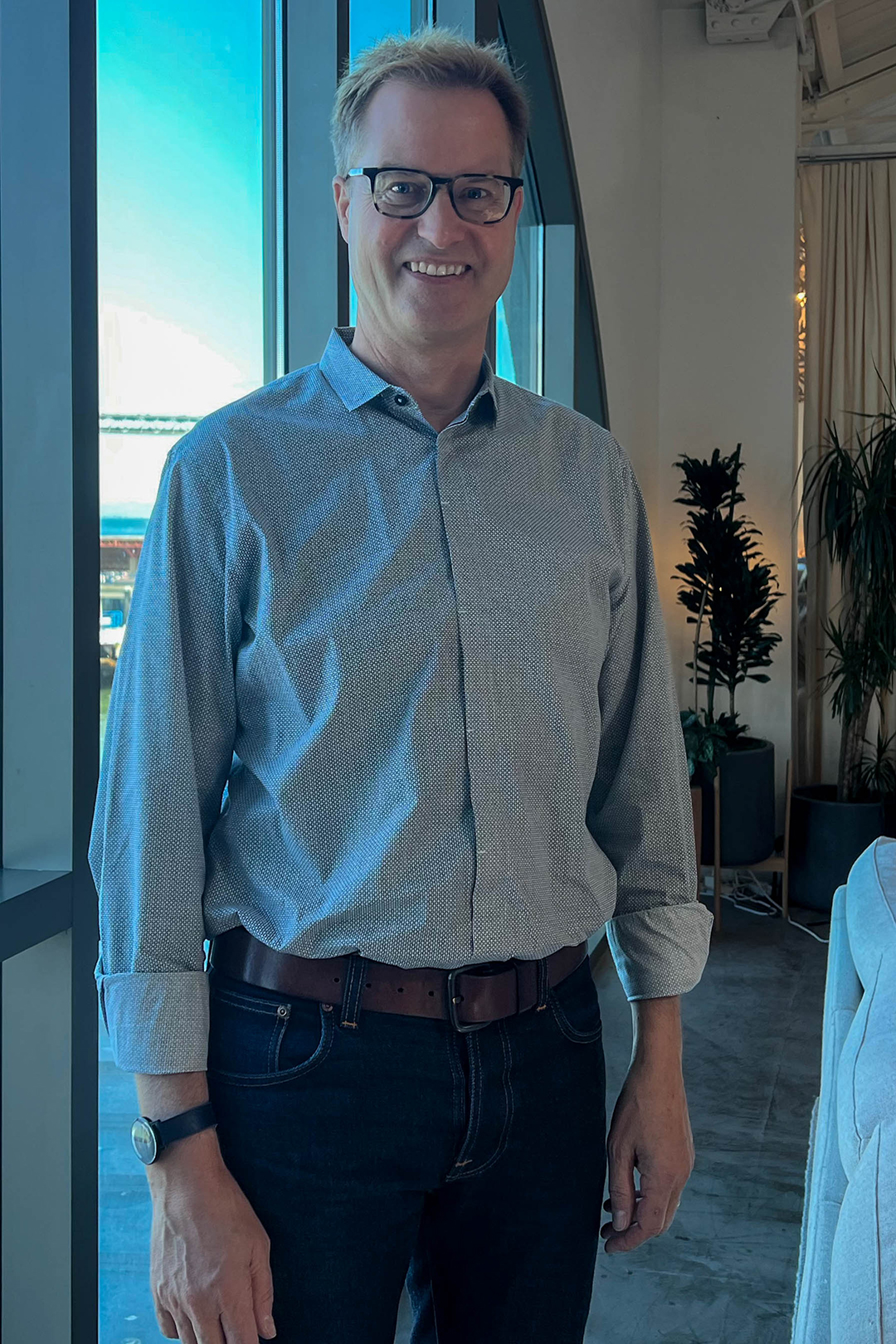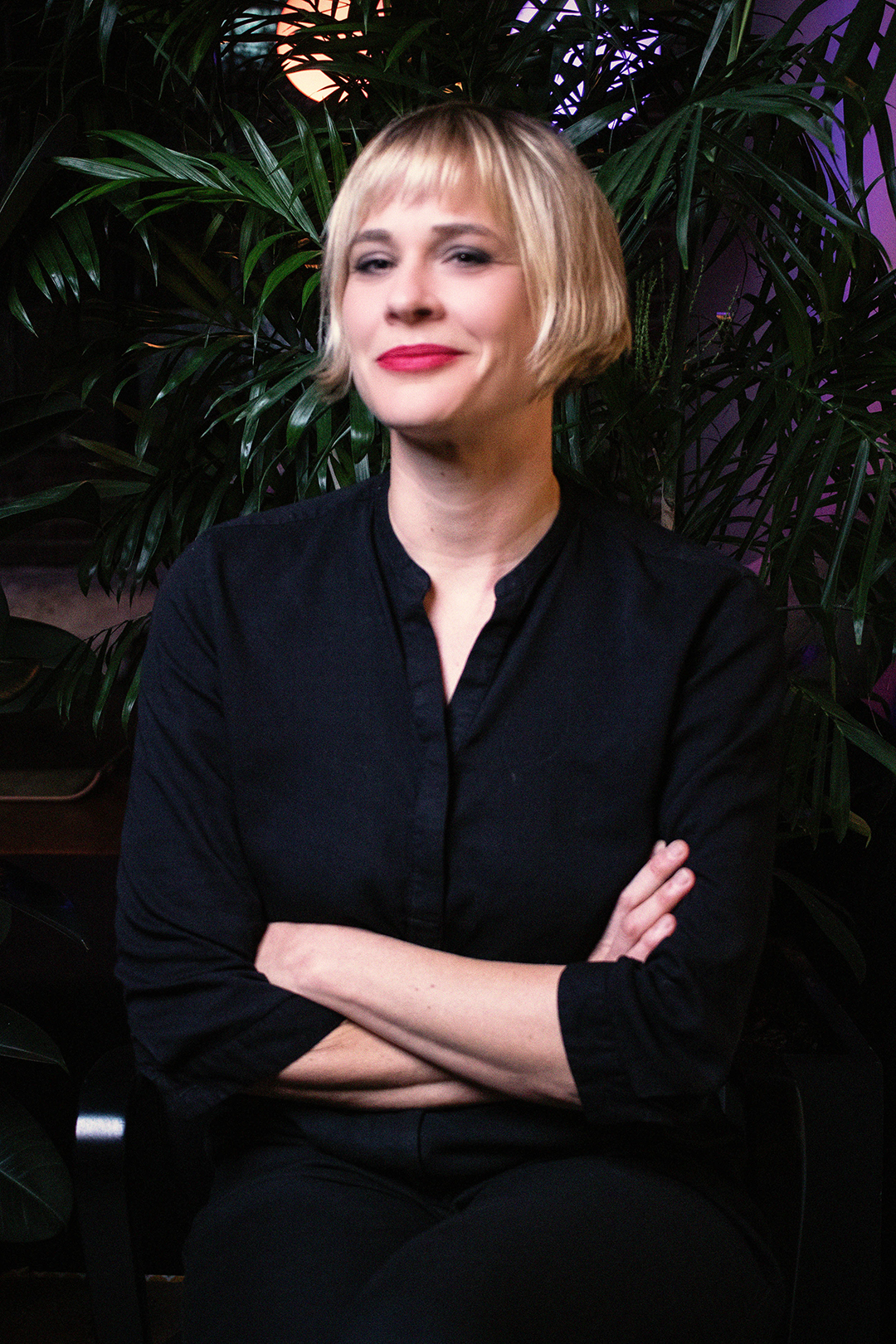What Switzerland can learn from Silicon Valley

Switzerland and Silicon Valley have a lot in common: cutting-edge research, some of the best universities in the world, innovation concentrated in a small area. But the Alpine country still lacks the entrepreneurial culture and investment to compete with the Californian ecosystem.
Cristian Grossmann knew that sooner or later his company would have to land in the United States to make the big leap from small Swiss start-up to international enterprise. “You cannot be a global company if you are not in the US,” he says.
It was a chance meeting with a Silicon Valley investor that allowed Grossmann to secure the multi-million-dollar funding he needed to expand his business – a mobile communications platform for staff in hotels, hospitals and other public facilities – and set sail overseas. The entrepreneur recalls that despite a good support network in Zurich, including the presence of the federal technology institute ETH Zurich, his company’s beginnings in Switzerland were not easy.

On paper, the Alpine country has no reason to envy Silicon Valley, considered the cradle of successful start-ups. Year after year, Switzerland is countedExternal link among the most innovative countries in the world, not least because of its world-renowned universities and exceptionally high number of patents filed. Before founding Beekeeper in 2011, Grossmann himself came from Mexico to study engineering at ETH Zurich.
Despite its small size, Switzerland has seen hundreds of new companies spring up in recent years, mainly in the high-tech sectorExternal link, some of which have become “unicorns”, surpassing a billion-dollar valuation. These include the CO2 capture company Climeworks and the online booking platform GetYourGuide.
Yet in Switzerland, the companies that dominate the market and create thousands of jobs are often over 100 years old. The food giant Nestlé and the pharmaceutical giant Roche are among the most emblematic examples.
Two of the largest companies in Silicon Valley, Alphabet and Meta, are less than 20 years old. The number of start-ups achieving unicorn status each year is very high for an area almost nine times smaller than Switzerland. In 2023 alone, more than 20 start-upsExternal link exceeded the billion-dollar mark.
Silicon Valley and Switzerland are both considered among the most innovative areas in the world. Why? What divides them and what brings them together? What can they learn from each other? In this series, we tell you about Silicon Valley through the eyes of the Swiss who experience its temptations, promises and contrasts up close.
“In Silicon Valley it is as if dozens of companies with the potential of Nestlé, Roche, ABB… are born every year,” says Gert Christen. The Swiss entrepreneur lives in San Francisco and helps foreign companies, including Swiss ones, succeed in the US market.
Christen is convinced that mentality is one of the key ingredients to achieve entrepreneurial success. “Being successful as an entrepreneur or businessperson is not a coincidence, it is a method,” he argues.
The “method”, Christen says, cannot be separated from a certain inclination to risk. It’s a trait inherent to the entrepreneurial culture of Silicon Valley, as Christen learnt when he moved to California eight years ago. It’s far less inherent to Switzerland. Christen is among those who believe that, with a little more courage, Switzerland could become the Silicon Valley of Europe.
‘Method’ for Silicon Valley success

To found a start-up, you have to work seven days a week and be willing to fail and lose your savings.
“But people in Switzerland prefer to be employed in a company and enjoy the comforts, holidays and a guaranteed income,” Christen says.
According to one surveyExternal link, only 40% of the Swiss population sees an entrepreneurial career as an attractive path. This percentage exceeds 60% on average in rich countries and even 70% in the United States.
The ability to attract significant funding is also part of the “method” for success. In the Californian valley, there is no shortage of billionaire capital and investment companies willing to finance even the riskiest ideas to grab the next disruptive invention.
“Ideas do not have to be fully baked to be taken seriously by investors. That’s what I love about Silicon Valley,” says Herman Gyr, a Swiss-US innovation and business strategy consultant who emigrated to Palo Alto more than 40 years ago. However, Gyr points out that significant early-stage funding is rare and usually depends on the innovator’s proven track record with previous innovations.
Why Swiss companies move to Silicon Valley
Silicon Valley is also the only place in the world where funding is present from the early to late stage of a company’s development. Research by Ilya Strebulaev, professor of finance and private equity at the Stanford Graduate School of Business, suggests that start-ups that go public receive seven rounds of venture capital.
In Switzerland, by contrast, funding is mainly concentrated in the early stageExternal link. “Many Swiss and European start-ups migrate to Silicon Valley to raise follow-on funding,” he says.
Cristian Grossmann’s Zurich-based start-up Beekeeper is among those that have followed this path.
“When I decided to found Beekeeper 12 years ago, I felt alone,” Grossmann recalls. The people around him did not understand why he wanted to leave a secure job at a well-known consulting firm to become an entrepreneur. Some of his colleagues who had embarked on the venture with him preferred to jump ship and take well-paid jobs at Google and in banks.
Grossmann does not blame them. “We had to make big sacrifices at the beginning,” he says. ETH Zurich supported the idea by granting the spin-off label, but not financially. So Grossmann and the other co-founders scraped together money from friends and relatives. For the first two years, they had no salary and lived off their savings. They adapted to living on a salary of CHF2,000 ($2,300) per month, paid from the company’s first earnings. “The career of an entrepreneur is not for everyone,” he admits.
But Grossmann’s willingness to take risks and seize opportunities paid off: in 2015 he met Philipp Stauffer, a Swiss investor living in Silicon Valley, at an event. Stauffer then helped the company find the multimillion-dollar capital to take off and access the huge US market. Today, Beekeeper has around 220 employees and offices in San Francisco, Berlin, Krakow and Zurich.
Switzerland could do better
In Zurich the air is different from in the rest of Switzerland when it comes to start-up culture. Over the past two decades the city has become the country’s most important entrepreneurship hub, especially in the IT sector. The growing number of innovative start-ups, often spin-offs from universities, as well as highly qualified engineers and scientists, has attracted global technology giants such as Google, Facebook and Microsoft, which have opened offices and research centres in the city.
In 2022, investment in emerging companies in canton Zurich exceeded CHF2 billionExternal link for the first time. Geneva, Lausanne and Zug are also emerging as innovation hubs.

That’s still a long way from the record-setting figures of Silicon Valley, whose start-ups raised more than $100 billionExternal link (CHF87 billion) in total investment in 2021, a sum 30 times higher than in Switzerland.
“Switzerland has a lot to offer in terms of talent, research and development and new inventions, but it is still difficult to expand and scale your business,” says Sophie Lamparter. The entrepreneur and investor with one foot in Zurich and the other in San Francisco has been helping promising Swiss start-ups in the climate and health sectors accelerate their growth in the US market for more than a decade.
Lamparter believes the Swiss government should do more to incentivise start-ups to expand their business from Switzerland. This includes investing more financial resources to ensure that technologies developed in universities reach the market, instead of giving the opportunity to foreign investment companies or international technology giants.
“In Silicon Valley you try, you risk, you aim high or you lose. But it is only in this way to continue to think big.”
Edited by Sabrina Weiss and Veronica DeVore

More
Innovating fairly: Switzerland’s lessons for Silicon Valley

In compliance with the JTI standards
More: SWI swissinfo.ch certified by the Journalism Trust Initiative












You can find an overview of ongoing debates with our journalists here . Please join us!
If you want to start a conversation about a topic raised in this article or want to report factual errors, email us at english@swissinfo.ch.